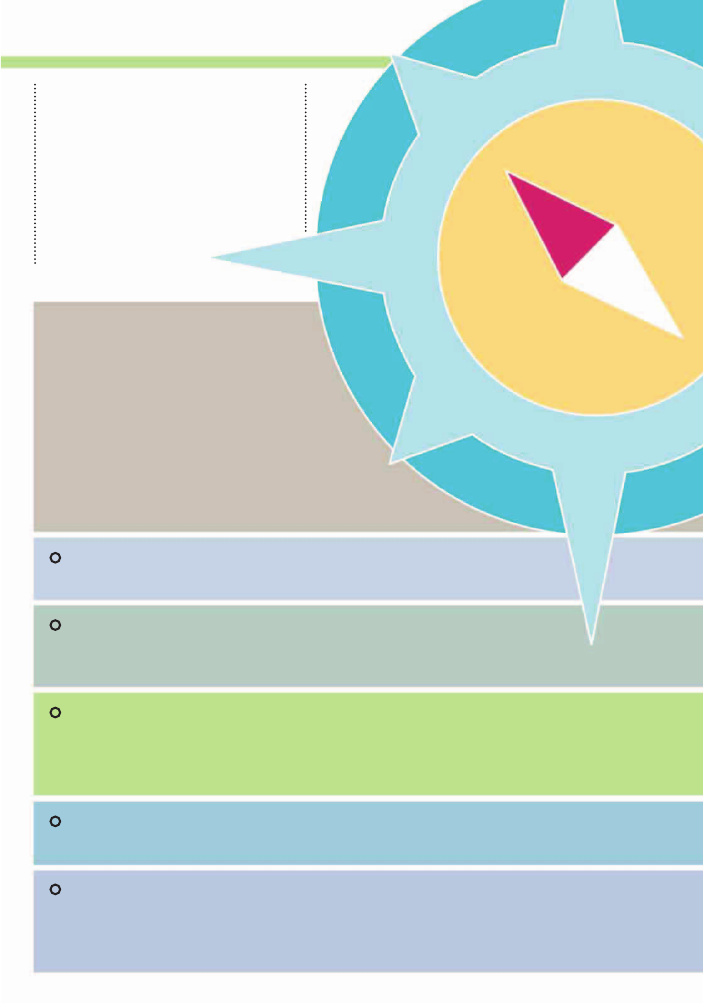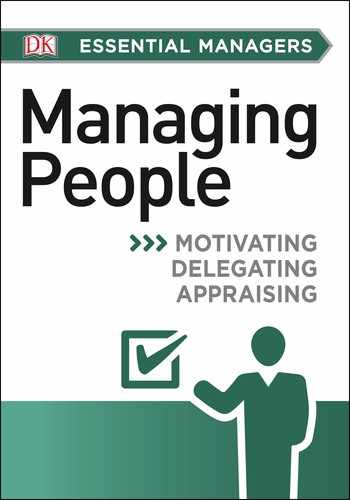
72 / LEADING OTHERS
Taking an ethical path
Understanding ethics
Ethics refer to the rules or principles
that define right or wrong conduct. In
the workplace, acting ethically is not
just an abstraction, it is an everyday
occurrence. Consider this dilemma:
an employee, after some pressure
from you, has found another job. You
are relieved because you will not have to
fire him; his work has been substandard
for some time. But your relief turns to
dismay when he asks you for a letter
of recommendation. Do you say no and
run the risk that he will not leave? Or
do you write the letter, knowing that
you’re influencing someone else to
take him on?
Being responsible
Ethics is important for everyone
in an organization, particularly as
some unethical acts are also illegal.
Many organizations want employees
to behave ethically because such
a reputation is good for business,
which in turn can mean larger profits.
However, acting ethically is especially
crucial for managers. The decisions
a manager makes set the standard
for those they are managing and help
create a tone for the organization. If
employees believe all are held to high
standards, they are likely to feel better
about themselves, their colleagues,
and their organization.
Few of us would be likely to steal or cheat, but how principled
would you be, or should you be, when faced with routine business
situations involving ethical choices? As a leader, you need to
have a clear understanding of your ethical principles and set
a consistent example for your team.
ASK YOURSELF…
YES NOIs what I’m about to do ethical?
1 Am I clear why I’m doing what I’m about to do? ..............................
2 Have I acknowledged my true intentions in taking this action? .....
3 Are there any ulterior motives behind my action, such
as proving myself to my peers or superiors? ..................................
4 Will my actions injure someone, physically or emotionally? ........
5 Would I disclose to my boss or my family what I’m about to do? ...

Developing ethics
The behavior of managers is under
more scrutiny than that of other
members of staff, and misdeeds
can become quickly and widely
known, destroying the reputation of the
organization. It is important for managers
to develop their own ethical boundaries—
lines that they and their employees should
not cross. To do this, you need to:
○
Know and understand your organization’s
policy on ethics.
○
Anticipate unethical conduct. Be alert to situations that may
promote unethical behavior. (Under unusual circumstances, even
a normally ethical person may be tempted to act out of character.)
○
Consider all consequences. Ask yourself questions such as: “What
if my actions were described in detail on a local TV news show, or
in the newspaper? What if I get caught doing something unethical?
Am I prepared to deal with the consequences?”
○
Seek opinions from others. They may have been in a similar
situation, or at least can listen and be a sounding board for you.
○
Do what you truly believe is right. You have a conscience and are
responsible for your behavior. You need to be true to your own
internal ethical standards. Ask yourself the simple question:
“Can I live with what I have decided to do?”
A reputation for ethical
practice boosts staff
satisfaction and morale
and is good for business,
which in turn can mean
larger profits
..................Content has been hidden....................
You can't read the all page of ebook, please click here login for view all page.
